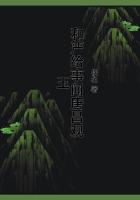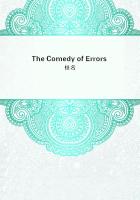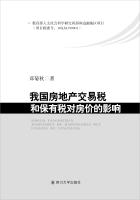Meanwhile a wider problem has to be considered.Unless some remedy can be found for the existing evils,he says,the industrial system of this country --the dependence,that is,of the whole labouring class upon the wages of hard labour --though regarded by many writers as the ne plus ultra of civilisation,must be 'irrevocably condemned.'(73)The agricultural labourer can be taken out of that position.By making him a proprietor he can be brought --within the range of new motives.The independent peasant has in visible form before his eyes the base from which he and his family must draw supplies.It requires no abstract reasoning to show him that,if he brings more mouths into existence,his fields will not therefore bear double crops.
But for the artisan who is a minute part of a vast organisation,whose wages come out of an indefinite,unexplored reservoir which may be affected by changes in commerce of the origin and exact nature of which he is completely ignorant,there is no such palpable limit.The springs from which his subsistence flows may,for anything he sees,be inexhaustible.He is a unit in a large multitude,which,taken as a whole,must undoubtedly be somehow dependent upon the general resources of the nation.But how to explain the intricate relations of the different classes is a problem puzzling to the best economists,and capable of all manner of fallacious solutions.As an individual,the artisan might learn like other people to be prudent;but to know what is prudent he must understand his position.Can the labourer rightfully demand or reasonably expect to get a larger share of the wealth which he produces,or must he confine himself to limiting his numbers,and trusting to supply and demand to bring his right share?Here the workman was misled by all manner of false lights;and it became incumbent upon Mill to explain the position.
A population entirely dependent on wages never,says Mill,(74)refrains from over-population unless from 'actual legal restraint,'or some 'custom'which 'insensibly moulds their conduct.'The English agricultural labourer seems to multiply just as far as he can.(75)All 'checks'have gone or are going.
If the artisan is better off,it is due to the rapid expansion of our trade.Should the market for our manufactures --not actually fall off but cease to expand as rapidly as it has done for fifty years,we may fall into the state of Ireland before 1846.He hopes,indeed,that the factory population may be intelligent enough to adapt itself to circumstances.The fact that so large a part of our population is composed of middle classes or skilled artisans is the only security for some restraint.Yet Mill's opinion even of the artisan was low.English experience confirms the evidence of Escher of Zich.(76)The head of the English artisan is turned by the idea of equality.'When he ceases to be servile,he becomes insolent.'(77)There is nowhere,he says elsewhere,(78)any friendly sentiment between labourers and employers.The artisan,swamped by the growing multiplication of unskilled labour,will too probably,we may infer,take a false view of the situation,and ascribe his poverty not to his own neglect of Malthus,but to the greed and hard-heartedness of the capitalist.Such an anticipation was likely enough to be realised.
This leads to the great problem of the true relation between capital and labour.The distinctive peculiarity of England was the dependence of the masses upon wages.How,as Mill has asked,is this state of things reconcilable with improvement?He will assume,as his predecessors had substantially done,that the capitalist and labourers are separate classes,and that the labourer derives his whole support from the capitalist.Though this is not everywhere true,it is for him the really important case.Moreover,he seems to think that the rule derived from considering the classes separately will not be altered when the two characters are united in individuals.The labourer,so far as he has 'funds in hand,'is also a capitalist;and that part of his income is still decided by the general law of profits.(79)The assumption of a complete separation,made for convenience of argument,might no doubt be confounded with a statement of fact.
At any rate,it is merely an explicit avowal of the tacit assumption of the orthodox economists.
Here,then,we pass from Malthus to Ricardo.Mill adopts the Ricardian scheme,though trying to make it more elastic.
Ricardo's doctrine of a 'minimum'rate of wages to which the 'general rate'constantly approximates has enough truth for the 'purposes of abstract science.'(80)The rate indeed varies with the standard of living,and that,as we have seen,is a critical point.Yet the main outlines of the theory remain.As population presses upon the land,the landlord gets the benefit of his 'monopoly of the better soil,'and capitalist and labourer divide the remainder.Profits and wages,as Ricardo had said,vary inversely;a 'rise of general wages falls on profits;there is no possible alternative.'(81)Here,indeed,an important modification must be made in Ricardo's words,in order to state what Ricardo 'really meant.'(82)Profit depends,not upon wages simply,but upon the 'cost of labour.'The labourer is not a fixed quantity,representing so many 'foot-pounds'of energy;his efficiency,as Mill argued,may vary indefinitely with his moral and intellectual qualities;(83)it may be profitable to pay for the effective labour double the wages of the ineffective;and,in point of fact,'the cost of labour is frequently at its highest where wages are lowest.'(84)Thus interpreted,Ricardo,like Malthus,admits of progress.















